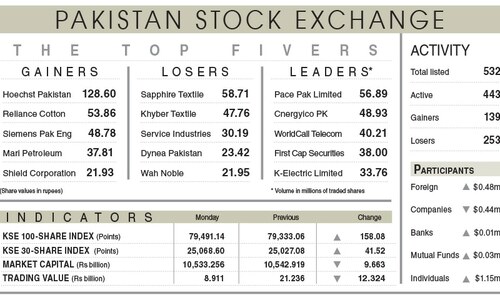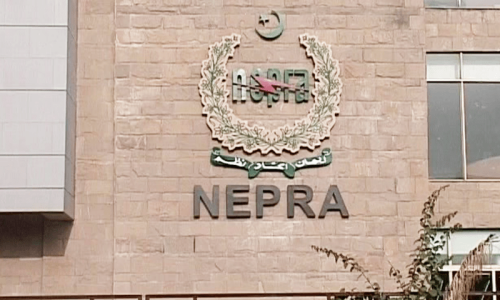 Today, one of the key challenges the emerging economies face while pursuing economic growth and development is how to counter poverty. Poverty is a multifaceted phenomenon that includes, but goes beyond lack of adequate income.
Today, one of the key challenges the emerging economies face while pursuing economic growth and development is how to counter poverty. Poverty is a multifaceted phenomenon that includes, but goes beyond lack of adequate income.
Most poor people in the world still lack access to sustainable financial services such as credit, savings, insurance etc and in most developing countries including Pakistan financial services are available to a minority. The majority has no bank accounts, do not receive credit, save, have an insurance policy or avail payment or transfer mechanisms from any financial institutions.
The access to a well functioning financial system can economically and socially empower individuals. It can enable poor people to better integrate themselves into the economy and actively contribute to development by being part of the mainstream economy and, at the same time, protect themselves against economic shocks, thus improving their lives and of those that depend upon them.
The great challenge before us is to address the constraints that exclude people from full participation in the financial sector. We can and must build an inclusive financial sector that helps people improve their lives.
Microfinance has enabled people living on lower economic thresholds to access financial services and establish their creditworthiness. And evidence suggests that the institutions serving these market segments can be sustainable despite higher cost of transaction and scale of operation. Moreover, with the advancement in information and computer technologies (ICT), the differential of serving the lower segments of the market is gradually reducing.
Regulated microfinance is relatively a new phenomena that potentially provides access to affordable financial services such as loans, savings, leasing, insurance, payments and transfers etc across all segments of the population. What it requires is sound retail institutional capacity with strong governance and management systems whilst meeting the industry standards and performance monitoring by the market. The vision of financial inclusion is guided by sound prudential regulations and the commitment to institutional sustainability over a timeline.
Governments have an important role to play in building an inclusive financial sector; however, this role has to be supportive as at times government interventions can be regressive and impede financial sector development. Country level policy framework should be developed with a clear vision along with liberalisation of interest rates. Government should not be directly involved in financial intermediation while providing incentives, with policies to broaden and strengthen the infrastructure.
Furthermore, the ability of microfinance institutions to access commercial capital is a challenge. The progressive inclusion of microfinance institutions into domestic or international financial markets generally occurs when these institutions begin to generate deposits as a source of funding and when they begin to access debt and short- term funds utilising capital market---instruments such as bond issue, securitisation and equity financing. Inclusion of these institutions within national/international transfer, clearing and settlement system is important.
However, the single greatest challenge remains adequate retail capacity. Institutions with efficient and streamlined structures appropriately priced products and services and a commitment to sustainability can become major players in a very large potential market. Here, striking the right balance between what is to be achieved through legislation and what is to be achieved through regulatory frameworks is of paramount importance.
Also, given the nature of the market segment, special prudential regulations are required for the sector otherwise there is a risk of over or under-regulation that may restrict market entry. The balancing act involves the perfect combination of profitability, risk and incentive structures. Therefore there has to be a right tradeoff.
It is vital that the objectives of increasing access to the poor to financial services be included within the regulatory and supervisory guidelines of the central bank in addition to the traditional responsibility of protecting the depositor and the stability of the financial system. The inclusive financial sector is by any means a major challenge requiring well-thought out action plan.
This includes a consultative process at the national level involving stakeholders as well learning from best practices and experiences so that we come up with a cohesive strategy that addresses the concerns of all stakeholders and has ownership. In spite of this recent surge in microfinancing institutions and clients, there still lies a huge untapped market with great potential.
Microfinance is surely a means to an end and is often considered to be one of the most effective strategies in the fight against global poverty. It is sustainable and can be implemented on a scale necessary to respond to the urgent needs of those living on less than $1 a day. It gives the less privileged the tools they need to lift themselves out of poverty and presents them with an opportunity to reap the rewards of their own labour. It also helps bring the poor at par with the formal work sector where their rights can be recognised and they can contribute to society while being a part of mainstream economy.
It is expected that the government will continue to play a catalytic role while donors, private investors, civil society institutions and development organisations take advantage of and make their contribution for poverty reduction, in a sustainable manner. Ultimately, the objective of all efforts should be to foster the inclusive development of the financial sector that will increase access, build financial assets and improve the lives of millions of households currently excluded from economic opportunity.
While the challenge may be daunting, the payoff’s can be correspondingly huge.
The writer is the President, Khush’hali Bank
















































Dear visitor, the comments section is undergoing an overhaul and will return soon.